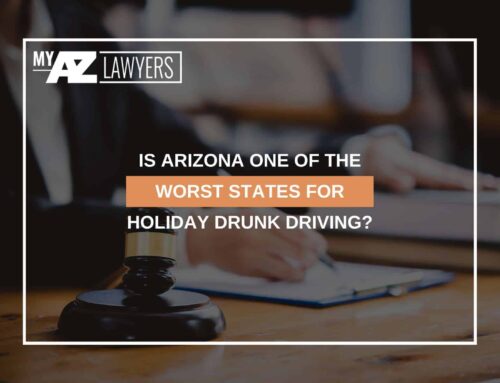Table Of Contents
Dealing With A Mortgage After The Death Of A Loved One
With most home mortgages lasting about 30 years, not everyone lives to see their home paid off in full. And most people want their homes to go to their spouses, children, and other surviving loved ones rather than going back to the bank. Depending on the circumstances surrounding your passing, your loved ones might already be overwhelmed by tasks, like planning the funeral and figuring out their financial situation going forward, in addition to their grief. Transferring the mortgage to your intended beneficiary’s name is another task that needs to be completed if you still make monthly payments on your home. This can also be a necessary step for your beneficiary to deal with utility companies, home insurance providers, etc. Read on to learn more about how to make this process easier for your loved ones and how to supplement that with your estate plan. To schedule your free consultation with an experienced Phoenix-area estate planning lawyer, call 480-470-1504.

Mortgage Protection Insurance
Housing costs are already sky-high, but some people still elect to pay a little bit extra to enroll in mortgage protection insurance when they buy their homes. Mortgage Protection Insurance, or MPI, is meant to cover mortgage payments if the policyholder passes away before the mortgage is paid off. Some MPI policies will also cover temporary situations, such as being injured in an accident and unable to work for a while. MPI can be considered a form of life insurance if the policy only goes into effect when the policyholder dies. This should not be confused with PMI, or Private Mortgage Insurance, which is used to protect a lender if the buyer puts less than 20% down on their home. It also shouldn’t be confused with FHA Mortgage Insurance. MPI gives policyholders the peace of mind knowing that their family home will be protected if they pass away, but the funds from an MPI policy can’t be used on other expenses like property taxes, utilities, etc.
MPI costs vary based on the borrower’s age and how much coverage they wish to purchase- someone who puts 40% down on their home will need less coverage than someone who puts down 20% or less. A policy for someone who is 50 years old may cost more than someone who is 30 years old. The insurance provider will also consider how many years are left on the loan. If you intend to name someone as a beneficiary for MPI, you need to inform them and make sure they are educated about the policy’s terms. There have been instances when a homeowner pays for this type of insurance, never tells their beneficiary, and their beneficiary ends up paying off the remaining balance in error. You can always use your will and estate plan to make it perfectly clear that your home’s mortgage should be satisfied by the insurance policy. Want more information about how to execute a valid and accurate estate plan with an experienced Arizona estate planning lawyer? Call 480-470-1504 to schedule your free phone consultation today.
Transferring The Mortgage
If a home isn’t paid off, mortgage payments are still due if the borrower passes away and didn’t have MPI coverage. The lender can foreclose if too many payments are missed after the home purchaser passes away. It can create additional issues if there are family members besides the purchaser living in the home who need to make sure they keep a roof over their heads. While it is the last thing anyone wants to deal with while working through the grief over a loved one’s passing, it’s important to make sure the mortgage is transferred as soon as possible.
Because Arizona is a community property state, a marital home will usually pass to a surviving spouse. Regardless of your marital status, without an estate plan, your estate will be distributed according to Arizona’s intestate succession laws. This creates hassles and potential disputes just over identifying the heir before the mortgage can even be transferred. Avoid this hassle by creating your estate plan not later, but today. If your heir is named in your estate plan, they don’t need to prove they qualify based on income to continue paying your mortgage. Without a will in place, your heir will need to show the mortgage provider that they are entitled and obligated to take over the loan payments. This will usually require providing your death certificate and other documentation. Therefore, just like with MPI, you should inform any intended beneficiaries of your home mortgage before your passing so they know to transfer the mortgage as soon as possible.
Important Documents For Your Estate Plan
If you learn one thing from reading this post, it’s hopefully just how important it is to create an estate plan to eliminate stress and confusion for your loved ones after your death. The simple act of creating a will can make it easier for your family to transfer the name on your home mortgage without income qualification should you pass away before it is paid in full. Your will can also be used to name an executor for your estate and a legal guardian for your children in addition to distribution of assets. But a will isn’t always the most efficient way to distribute assets, as other estate planning instruments can allow the estate to reduce its tax liability and minimize or even completely avoid the probate process. Some of the other tools you should consider for your estate plan include:
- Trusts: Trusts can be used to designate assets from your estate for your beneficiaries, and trusts come with a variety of specific purposes. Special needs trust can contribute to the future medical costs for a loved one with a serious disability or medical condition. Educational trusts can be used to set aside funds for the education of one or more beneficiaries. Incentive trusts create requirements for your beneficiaries to receive funds so their inheritance isn’t squandered, like graduating from college or having a child. Trusts can either be revocable or irrevocable. There are different benefits and disadvantages associated with each.
- Health care power of attorney: An advance directive lets your loved ones know what you would like done if you are still alive but no longer able to make and communicate your decisions to others. You can select someone to be your health care representative (or health care surrogate, health care proxy, etc.) and make these decisions on your behalf.
- Living will: Instead of designating a representative, a living will allows you to directly state what you would like done under certain conditions. You can choose whether you would like to receive CPR, dialysis, antibiotics, tube feeding, mechanical ventilation, and other medical treatments with your living will. You can also use your living will to indicate whether you would like to be an organ donor or donate your body for scientific research.
Your Estate Plan Doesn’t Need To Be Complicated. Discuss It With An Experienced Professional Today.
Creating all the documents necessary to make your wishes clear and valid can be a burdensome task, but well worth it if you are concerned for your family’s welfare after your passing. You can use your estate plan to facilitate transferring your home mortgage from yourself to your chosen beneficiary. You can also use your estate plan to indicate if you want valuable assets like your home to be split between more than one beneficiary. Our knowledgeable Arizona estate planning lawyers will help you determine what is necessary for your estate plan, and how your loved ones will be affected by the choices you make. Learn more about your options for free, over the phone, by scheduling your consultation with our firm-call 480-470-1504 to get started today.

MY AZ LAWYERS
Email: [email protected]
Website: www.myazlawyers.com
Mesa Location
1731 West Baseline Rd., Suite #100
Mesa, AZ 85202
Office: 480-448-9800
Phoenix Location
343 West Roosevelt, Suite #100
Phoenix, AZ 85003
Office: 602-609-7000
Glendale Location
20325 N 51st Avenue Suite #134, Building 5
Glendale, AZ 85308
Office: 602-509-0955
Tucson Location
2 East Congress St., Suite #900-6A
Tucson, AZ 85701
Office: 520-441-1450
Avondale Location
12725 W. Indian School Rd., Ste E, #101
Avondale, AZ 85392
Office: 623-469-6603











